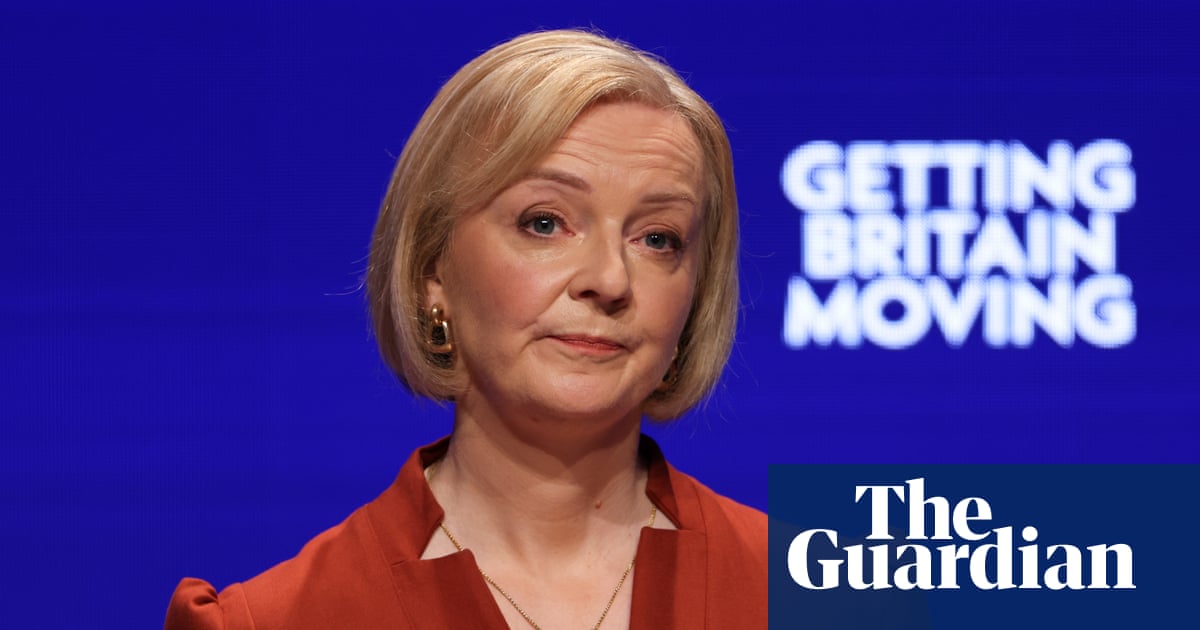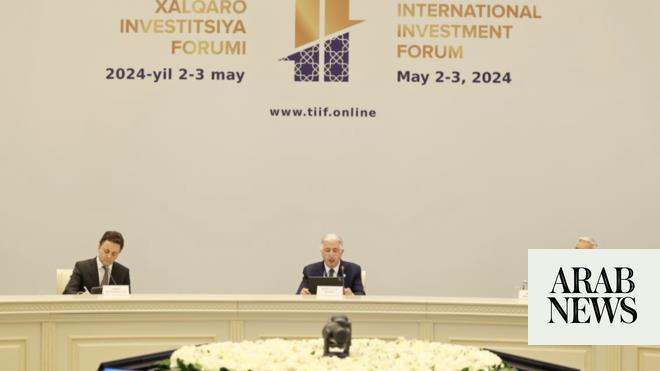
Liz Truss has promised Britons she has “got your back” and set out a plan for “growth, growth and growth” in a conference speech disrupted by protesters asking who voted for her plan.
After a fractious party conference and dire opinion polls for the Tories, the prime minister attempted to speak directly to the public, saying: “I want what you want.”
She made the case for cutting taxes as “the right thing to do morally and economically”, despite having just U-turned over her decision to abolish the 45p top rate of income tax. On the decision to withdraw the policy, she said: “I get it and I have listened.”
However, a few minutes in, her speech was disrupted by protesters waving a Greenpeace banner, which said: “Who voted for this?”
As they were escorted from the hall to boos from the audience, Truss said: “Let’s get them removed,” and joked: “Later on in my speech I’m going to talk about the anti-growth coalition. I think they arrived in the hall a bit too early.”
Truss made her dash for economic growth the centrepiece of her speech in Birmingham, saying not everyone would like her disruptive plan to change Britain but claiming that the UK would benefit from the results.
“The scale of the challenge is immense. War in Europe for the first time in a generation. A more uncertain world in the aftermath of Covid. And a global economic crisis,” she said. “That is why in Britain we need to do things differently. Whenever there is change, there is disruption. Not everyone will be in favour. But everyone will benefit from the result – a growing economy and a better future. That is what we have a clear plan to deliver.”
However, the pound fell against the US dollar after the speech. Sterling had initially hit a three-week high against the dollar in early session trading, but soon slipped back amid fears over the government’s credibility and fell a further 1%, to $1.136 at the end of the speech.
Truss has repeatedly refused to say whether she will raise benefits in line with inflation, triggering a cabinet split as the leader of the Commons, Penny Mordaunt, and the Welsh secretary, Robert Buckland, suggested this should happen.
But in her speech, Truss said she would exert an “iron discipline” over public spending, hinting at possible austerity to come. “I believe in sound money and a lean state,” she said.
Most of Truss’s speech concentrated on her zeal for change, and love of business and deregulation. She said all EU regulation would be consigned to history by the end of the year.
But she also referred to her own career, saying people had underestimated her. “I stand here today as the first prime minister of our country to have gone to a comprehensive school,” she said.
However, Truss’s claim was challenged, as Gordon Brown and Theresa May attended selective secondary schools that turned into comprehensives, while Ramsay MacDonald and Jim Callaghan went to non-selective schools.
Truss also said she was committed to spreading economic growth throughout the UK, after growing up in Paisley and Leeds in the 1980s and 1990s. She said: “I know what it’s like to live somewhere that isn’t feeling the benefits of economic growth. I’ve seen boarded-up shops and seen people left with no hope turning to drugs.”
Truss also spoke about people she thought were part of the “anti-growth coalition” and attacked political opponents who lived in “north London townhouses” and got taxied to the BBC studios to express their views.
She listed “Labour, the Lib Dems, the SNP, the militant unions, the vested interests, the talking heads, the Brexit deniers, Extinction Rebellion and some of the people we had in the hall earlier” as those who she thought were working against the interests of growth.












